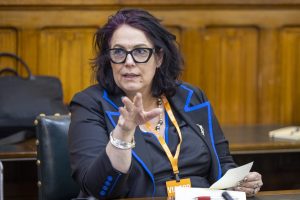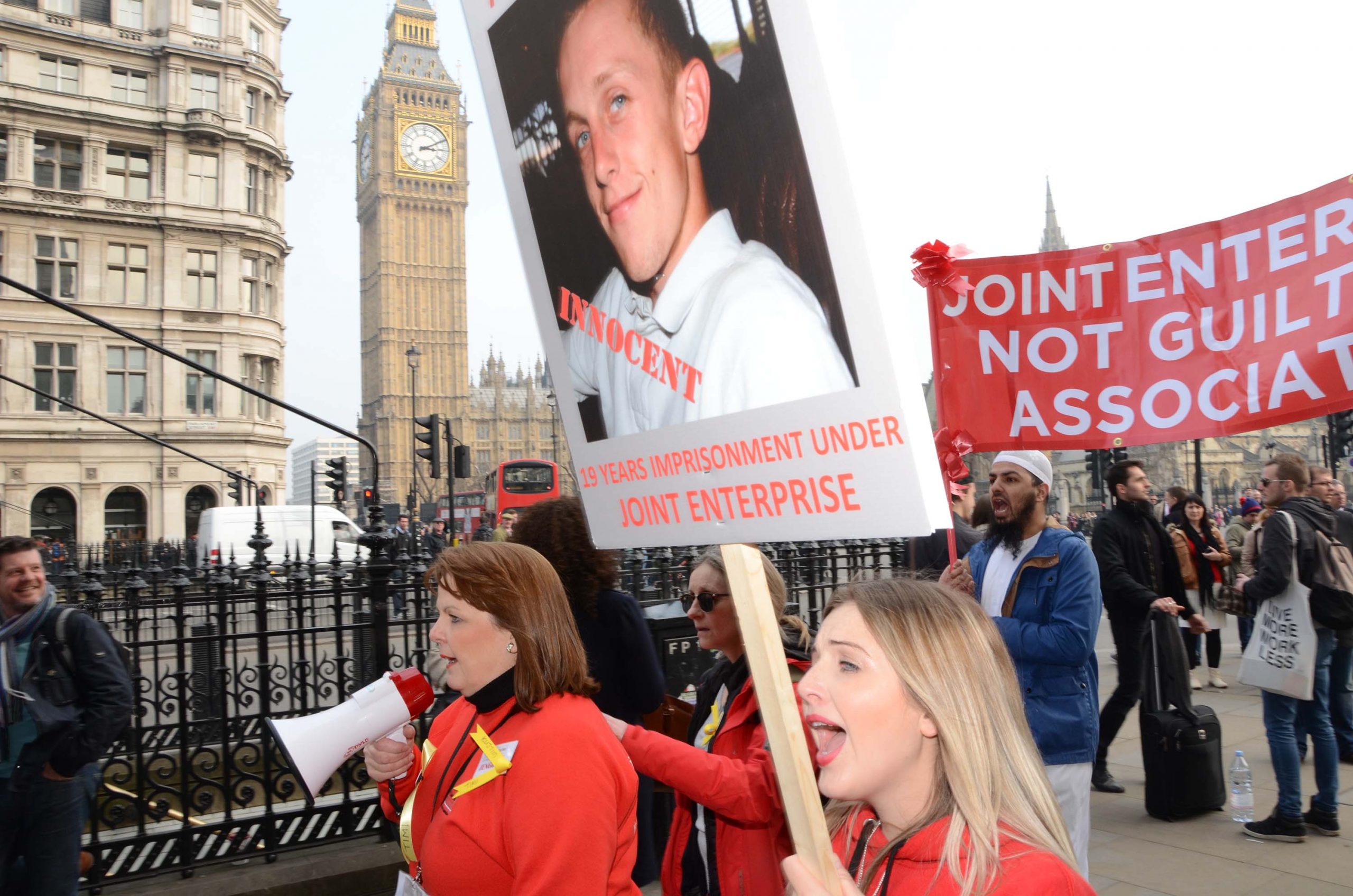Australians love Kmart: The discount retailer has carved out a place in the hearts of people across the nation due to its combination of cheap prices, fashion-aware homewares and clothing, toys, and practical goods. At some locations you can even have your car serviced while you shop. Long gone are the days of its ‘daggy’ reputation – Anko-branded* dupes of designer items are now common fodder for social media influencers (there are over 1 million posts on Instagram using variations of the hashtag #kmartaus) and its collective lure is the subject of many memes.

Even as other retailers in the discount space struggle, the Kmart group (which includes Target) recorded revenue of AU$11.43 billion in the 2025 financial year. Rob Scott, managing director of Kmart’s parent company Westfarmers, stated that Kmart Group’s high earnings were a result of “productivity and cost control.”
But what if efforts to improve “productivity and cost control” masks (or conversely reveals) modern slavery?
In early August, news outlets reported that Kmart is facing legal action on behalf of the Australian Uyghur Tangritagh Women’s Association (AUTWA), who claim that the retailer is sourcing some of its products from factories using forced labour in Western China.
Kmart denies AUTWA’s claims.
Kmart joins a long list of well-known companies who are accused of using Uyghur forced labour across at least 27 factories in the Xinjiang Uyghur Autonomous Region, China – including Amazon, Apple, BMW, Gap, H&M, Nike, North Face and Samsung, among others. Some countries have banned the import of products made in the Xinjiang region, following a UN report detailing that China uses forcibly detained people in the region to work in factories and who are subject to torture, surveillance and other human rights abuses. Australia has not.
Interestingly, simply banning imports may not be the most effective way to end modern slavery practices.
Remedy over running away
If modern slavery is located in supply chains, relevant guidance (including that adopted by the Australian government) suggests that the best practice is for corporations, like Kmart, to assist suppliers in remedying the problem rather than simply running away from it. Cancelling contracts can leave exploited people worse off.
“Where the harm has been caused by a supplier or third party, the first instinct might be to end the business relationship. However, this is rarely the best approach as it may leave victims in a situation where harm is likely to reoccur.”
Walk Free and HRREC Modern Slavery Response and Remedy Framework
But this requires that companies are genuinely transparent, investigative, and proactive in performing due diligence throughout their supply chains.
A recent article Felicity co-wrote with Ruby Evans for ANZSIL Perspective, notes that instead of banning products made with forced labour, Australian companies are mandated to comply with corporate disclosure provisions in the Modern Slavery Act 2018 (Cth) (‘the Act’) regarding their supply chains. Yet, 66% of companies failed to comply within the first two years of the Act coming into force.
Kmart states on their website’s “Modern Slavery” page that they publicly report on modern slavery risks and mitigation under their parent company’s Modern Slavery statement in accordance with the Act. They go on to state that an external human rights assessment which took place across the whole of Westfarmers Group in 2021 found that the “labour rights of workers […] was listed as one of the six most salient human rights issues” affecting the corporation. But Kmart asserts that their risk of modern slavery is low, despite ongoing issues with supply chain transparency.
Promisingly, their website lists proactive measures that the company can take in mitigation or response to modern slavery, forced labour and human trafficking in their supply chains. Kmart’s Ethical Sourcing Code is also available for download from their website along with a Transparency Policy and ethical sourcing data. It paints a comprehensive picture – but creating PDFs and ticking boxes do not necessarily mean that the supply chain is untainted by modern slavery, and, as Kmart admits themselves, it can be difficult to “have a clear oversight of working conditions”. Wouldn’t it be great if they went the extra mile to investigate and then remedy if suppliers were contravening modern slavery law and guidance?
So, if a company doesn’t really know whether their products are totally “sustainable” and “ethical”, then should they be able to say publicly that they are?
And, importantly, if a company is truly committed to remediation, why should there be a risk in saying they are not?
The former point goes to the heart of the point being made by Maurice Blackburn (the firm representing AUTWA) as they seek preliminary disclosure of documents revealing Kmart’s supply chain relationships, to prove that their products are not made by slave labour. And, in turn, that Kmart are not engaging in ‘misleading or deceptive conduct’ under Australian Consumer Law, by representing that their products are “sustainable” and “ethical”.
Law firm, MinterEllison explains that this is a way of getting around the issue that individuals and bodies corporate have when trying to commence proceedings under s 18 of the Australian Consumer Law – that is, unlike the ACCC who have statutory powers to investigate and compel the production of documents, regular litigants must rely on court procedure to obtain evidence that will assist them to commence proceedings. To do this they have to show the court that they do not have sufficient information to commence proceedings without the discovery they are requesting (under Rule 7.23 of the Federal Court Rules 2011 (Cth).
This issue of evidence has been a problem in international cases, such as the World Uyghur Congress case in England, in which the High Court affirmed the UK National Crime Agency’s position on declining to investigate whether cotton imports from Xinjiang were the product of “systemic forced labour and likely constituted “criminal property” under anti-money laundering laws”. However, the Court of Appeal overturned the ruling deciding that the NCA’s failure to investigate was unlawful based on the fact that forced labour is known to be pervasive in the cotton supply chain.
The AUTWA case is the first of its kind in Australia – if Maurice Blackburn and AUTWA are successful in their application for preliminary discovery, we may eventually gain some clarity about the Federal court’s position on supply chain transparency and corporate accountability for modern slavery therein.
In the meantime, perhaps we need to ask whether companies should step up and remedy human rights violations in their supply chains, regardless of whether there are active claims against them or not?
—
*Anko is Kmart’s in-house brand.
About the Co-Author
Phillipa Stafford is a researcher, artist and early career lawyer. Phillipa is admitted as a legal practitioner in the Supreme Court of Tasmania and is currently a research assistant at Deakin Law School’s Centre of the Law as Protection. In early 2025 Phillipa graduated from Deakin Law School with first class Honours. Her thesis, focused on binary notions of gender in international criminal law, was awarded the Deakin Honours Prize and the Victorian Supreme Court Exhibition Prize. In addition to her work in the legal field, Phillipa has a long running practice as an artist. She has had audio work commissioned platforms such as ABC Radio National, Radiophrenia Scotland and Earlid (New York). Phillipa is also one-half of the award winning collaborative project, Sisters Akousmatica, with Dr Julia Drouhin, exploring the radical possibilities of radio together since 2015.



